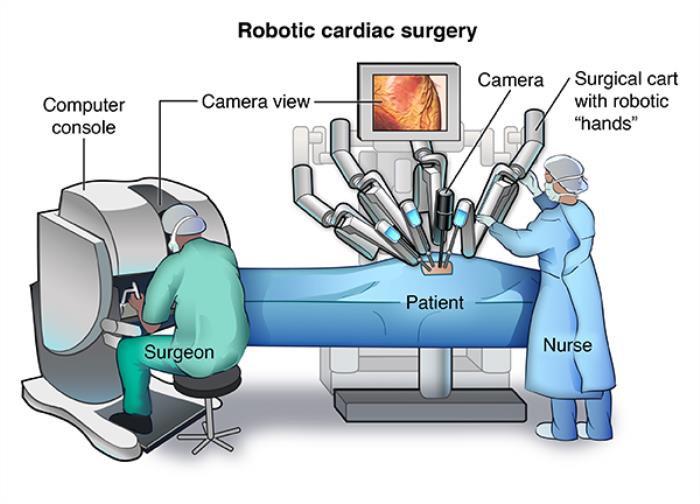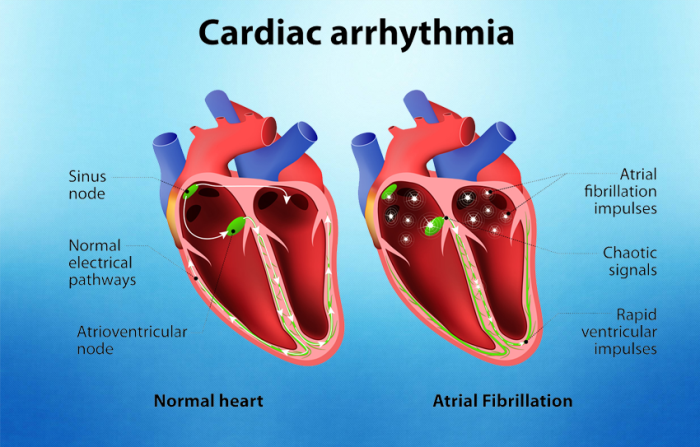Robotic surgery has emerged as a transformative approach in heart treatments, offering unparalleled precision and enhanced patient outcomes. By leveraging advanced technology, robotic-assisted procedures address the complexities of cardiac surgeries with greater accuracy and reduced invasiveness. This method is revolutionizing how surgeons treat delicate heart conditions, ensuring faster recoveries and improved long-term results for patients.
Medical disclaimer: This content is for general awareness and does not replace a doctor’s consultation. For diagnosis or treatment decisions, consult a qualified specialist.
What Makes Heart Surgeries Complex?
Heart surgeries often involve working on intricate and vital structures within a confined space, requiring extraordinary precision and control. The constant movement of the heart, coupled with the critical nature of the procedures, makes cardiac surgeries highly challenging. Any misstep can significantly impact a patient’s health, highlighting the importance of advanced tools and techniques like robotic systems.
The Precision Advantage of Robotic-Assisted Heart Surgery
Robotic-assisted heart surgery allows surgeons to perform procedures with unmatched accuracy. The robotic arms eliminate tremors and enable micro-movements that are impossible with the human hand alone. This precision is particularly crucial for intricate cardiac repairs, such as valve replacements or bypass surgeries, where even the smallest deviation can have significant implications.

Minimally Invasive Techniques for Faster Recovery
Robotic heart surgery is minimally invasive, utilizing small incisions rather than the large openings required in traditional methods. This approach reduces trauma to surrounding tissues, minimizes blood loss, and lowers the risk of complications. Patients experience shorter hospital stays and faster recoveries, enabling them to return to their daily lives sooner.
Enhanced Visualization for Treating Intricate Cardiac Conditions
Robotic systems provide surgeons with a magnified, high-definition 3D view of the surgical site, offering unparalleled clarity and depth perception. This enhanced visualization helps surgeons navigate complex cardiac structures with ease, ensuring precise treatment of conditions like atrial fibrillation or coronary artery disease.
Reduced Risk of Infection Compared to Traditional Surgery
The smaller incisions used in robotic heart surgery significantly reduce the risk of infection, a common concern in traditional open-heart surgeries. With less exposure to external contaminants and minimal tissue disruption, robotic-assisted procedures promote safer outcomes and faster wound healing.
Smaller Incisions, Less Scarring: A Patient-Centric Approach
Robotic surgery prioritizes patient comfort and aesthetics by utilizing tiny incisions that result in minimal scarring. This not only improves the cosmetic outcome but also reduces postoperative pain, contributing to a more positive overall experience for patients undergoing heart treatments.
How Robotic Surgery Improves Accuracy in Valve Repairs
Robotic surgery enhances the precision of valve repairs through advanced imaging and computer-assisted tools. Surgeons can perform intricate repairs on delicate structures like heart valves with unparalleled accuracy, reducing the risk of complications and ensuring better outcomes. The robotic system's magnified, 3D visualization provides a clear view of the surgical site, allowing for precise manipulation of instruments and minimal damage to surrounding tissues.
Treating Congenital Heart Defects with Robotic Precision
Robotic technology has become a valuable tool in correcting congenital heart defects. The minimally invasive nature of robotic surgery is especially beneficial for pediatric patients, as it reduces trauma and speeds recovery. Procedures such as septal defect closures or valve repairs can be performed with smaller incisions, leading to reduced scarring and less postoperative discomfort.
Improved Outcomes for Patients with Arrhythmias
For patients with arrhythmias, robotic surgery enables precise interventions, such as maze procedures or implantation of devices like pacemakers. The high level of control provided by robotic systems allows surgeons to target affected areas of the heart with minimal impact on healthy tissue, improving long-term heart rhythm stability.

The Role of Robotics in Bypassing Complex Coronary Arteries
Robotic systems excel in coronary artery bypass grafting (CABG), particularly when dealing with hard-to-reach or complicated arterial pathways. The enhanced dexterity of robotic arms allows surgeons to navigate intricate areas with precision, ensuring successful graft placement and improved blood flow to the heart.
Addressing Multiple Cardiac Conditions in a Single Procedure
Robotic technology enables surgeons to address multiple heart conditions simultaneously, such as repairing valves and bypassing blocked arteries in the same surgery. This comprehensive approach reduces the need for multiple procedures, minimizing risks and lowering overall recovery time for patients.
Reduced Blood Loss and Need for Transfusions
One of the significant benefits of robotic heart surgery is the reduced blood loss compared to traditional open-heart surgery. The precision of robotic instruments and smaller incisions help minimize trauma to tissues, lowering the likelihood of requiring blood transfusions and reducing complications associated with blood loss.
Shorter Hospital Stays and Quicker Return to Normal Activities
Robotic heart surgery’s minimally invasive techniques contribute to faster recovery times. Patients typically experience less postoperative pain, shorter hospital stays, and quicker return to daily activities compared to those undergoing open-heart surgery. This improved recovery timeline enhances the overall patient experience and reduces healthcare costs.
Success Rates of Robotic Surgery in High-Risk Heart Patients
Robotic surgery has proven to be a viable option for high-risk heart patients, including those with comorbidities or advanced age. The minimally invasive nature of the procedure reduces surgical stress and complications, leading to high success rates and better postoperative outcomes for patients in these categories.
Case Studies: Patients Who Benefited from Robotic Heart Surgery
Numerous case studies highlight the transformative impact of robotic heart surgery. Patients who underwent robotic procedures reported reduced pain, faster recovery, and improved cardiac function. These success stories underscore the potential of robotic technology to revolutionize heart care and improve quality of life.
How Robotic Technology Assists in Treating Heart Failure
Robotic systems are increasingly used in procedures to treat heart failure, such as ventricular assist device (VAD) implantation and other interventions that improve heart function. The precision of robotic tools ensures that these devices are placed accurately, optimizing their effectiveness and enhancing patient outcomes.
Robotic Surgery vs. Traditional Open-Heart Surgery: Key Differences
Robotic heart surgery differs significantly from traditional open-heart surgery in terms of technique and recovery. While open-heart surgery involves large incisions and significant recovery time, robotic surgery uses small incisions, leading to less trauma, fewer complications, and a quicker return to normal life. The enhanced precision of robotic systems also improves surgical outcomes, making it a preferred choice for many patients.
The Impact of Robotic Surgery on Reducing Surgical Fatigue for Surgeons
Understand how robotic surgery minimizes surgical fatigue. By utilizing robotic systems, surgeons can operate in a more comfortable position with enhanced dexterity and stability. This leads to improved focus, better outcomes for patients, and an overall increase in surgical efficiency and precision.
Addressing Common Fears and Concerns About Robotic Surgery
Explore ways to address fears and misconceptions about robotic surgery. Many patients worry about the lack of human touch, equipment reliability, and procedure safety. This article explains how robotic systems are closely monitored and controlled by skilled surgeons to ensure accuracy and safety, making it a reliable choice for modern cardiac care.
The Future of Robotic Surgery in Cardiac Care
The future of robotic heart surgery looks promising, with advancements in artificial intelligence and machine learning enhancing the capabilities of robotic systems. These innovations will enable even greater precision, shorter procedure times, and broader applications in treating complex heart conditions. As technology evolves, robotic surgery is poised to become the gold standard in cardiac care.
Best Robotic Heart Surgery in India
The Best Robotic Heart Surgery in India offers a minimally invasive approach to complex heart procedures, utilizing robotic technology to improve precision and reduce recovery time.
Robotic Heart Surgery Cost in India
The robotic heart surgery cost in india is competitive, offering patients affordable options for high-precision heart surgery with transparent pricing and accessible care.
Best Robotic Heart Surgeons in India
The Best Robotic Heart Surgeons in India are highly trained in robotic techniques, providing personalized care and expert precision in complex heart surgeries.
FAQ
What types of heart conditions are best suited for robotic surgery?
Robotic surgery is ideal for conditions like mitral and tricuspid valve repairs, coronary artery bypass grafting, atrial septal defect closures, and certain arrhythmia treatments.
How does robotic surgery minimize risks in complex heart procedures?
The precision of robotic instruments and advanced imaging reduces trauma to surrounding tissues, lowers the risk of complications, and ensures accurate interventions.
Is robotic surgery safe for elderly patients with heart issues?
Yes, robotic surgery is often safer for elderly patients due to its minimally invasive approach, which reduces surgical stress and promotes faster recovery.
What is the recovery time for robotic heart surgery compared to open-heart surgery?
Recovery from robotic heart surgery typically takes a few weeks, whereas open-heart surgery can require several months for full recovery.
Are all hospitals equipped to perform robotic heart surgeries?
Not all hospitals have the necessary robotic systems or trained surgeons. It’s essential to choose a specialized facility with experienced professionals for robotic heart surgery.
Explore the Best Heart Care Resources in India
Find some of the top cardiologist, surgeons and the best heart hospitals in India
Best Heart Hospitals in India
Choosing the right hospital is crucial for successful heart treatments. If you want to explore trusted options, check the list of Best Heart Hospitals in India offering world-class facilities, advanced cardiac care units, and experienced teams for both simple and complex procedures.
Best Cardiologists in India
Finding the right cardiologist can make a huge difference in early diagnosis and long-term heart health. If you are looking for the Best Cardiologists in India, see this curated list of experts who specialize in preventive care, interventional cardiology, and complex heart disease management. Check the full list Best Cardiologists in India.
Best Cardiac Surgeons in India
If you are planning for heart surgery and need top-level expertise, we recommend exploring the Best Cardiac Surgeons in India. These surgeons have a proven record in performing bypass surgeries, valve replacements, and minimally invasive heart operations with excellent outcomes.
Get more indepth information on Cardiology treatments and their costs.
Conclusion
Your cardiology health deserve the best care. Explore the links above to learn more about the top cardiac hospitals and cardiac surgeons in India.
Robotic heart surgery offers a minimally invasive approach for treating various heart conditions. This innovative surgical technique is used for procedures such as mitral valve repair or replacement, atrial fibrillation (AFib) ablation, coronary artery bypass grafting (CABG), repair of congenital heart defects, removal of cardiac tumors, and septal defect repair. Robotic surgery provides patients with reduced recovery times, less pain, and minimized surgical risks compared to traditional open-heart surgery. Common Conditions Treated with Robotic Heart Surgery
Robotic heart surgery is recommended for patients experiencing symptoms of serious heart conditions that may require intervention. Common signs include shortness of breath, chest pain, palpitations, fainting (syncope), and fatigue. These symptoms often indicate underlying issues such as mitral valve prolapse, atrial septal defects, coronary artery disease, or heart tumors. Early detection and treatment of these conditions can significantly improve patient outcomes and quality of life. Signs and Symptoms Indicating the Need for Robotic Heart Surgery
While robotic heart surgery offers many benefits, it is not without risks. Potential complications can include bleeding, infection, stroke, arrhythmias (irregular heartbeat), and anesthesia-related issues. There is also a small risk that complications during surgery may necessitate switching to an open-chest approach. However, the overall risk of these complications is generally lower compared to traditional open-heart surgery. Risks and Complications Associated with Robotic Heart Surgery